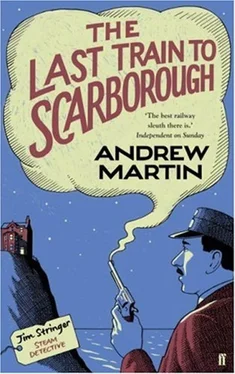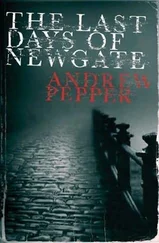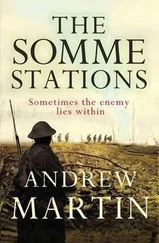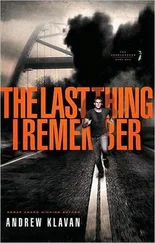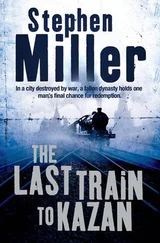Scarborough being a terminus, every engine that came in had to go on the turntable before heading out, and the turntable was in the shed. The number, make and point of origin of all the engines that came through would be recorded in a ledger, together with the names of the crew, and those ledgers were kept in the Super's office, which was in the back of the shed. We exchanged the falling rain for the shouts, clanging and smoke smell as we made towards those ledgers. But it turned out that the big fitter had all the vital entries in his head.
As we stood in the Super's office, supping tea from metal cups, the fitter explained that the name of any crew man who came into the shed more than half a dozen times would get about, and Blackburn had been through on just about that many occasions. He then related the fact I already knew: at the time of his last turn, Blackburn had been running Leeds-York, and had volunteered to fire his train on the extra leg to Scarborough, the York fireman booked for the job having been ill. I'd assumed this Scarborough trip to be a one-off until the sight of Les White had reminded me that very few railway men go into any station just once.
In fact, according to the fitter, Blackburn had done half a dozen Leeds-Scarborough turns before his final run. These were always on a Saturday, and they'd been Saturdays in the season when extra Scarborough trains were laid on from all the main towns of Yorkshire. The ledgers – when the Super handed them to me – confirmed the fitter's recollections, much to his own quiet satisfaction: Blackburn had fired into Scarborough on the final two Saturdays of August, and on all four in September. He hadn't worked into the town again until Sunday, 19 October, which had proved his final trip. The other coppers who'd investigated his disappearance must have known about these earlier trips, but had evidently thought them of no account. Had the Chief known of them? If so, why had he not told me? To my way of thinking, these earlier trips changed the whole picture.
In that little office, which was like something between an office and a coal bunker, the fitter and the Shed Super had gone back to eyeing me with arms folded, as if to say, 'Now what do you mean to do with this data?'
I put them off, for I didn't quite know, as I told Tommy when we came out of the shed. I would just keep it in mind when I went back to Paradise that someone in the house might have had dealings with Blackburn before he pitched up on that final Sunday.
It was raining hard now and sea, town and sky seemed in the process of merging. We came off the Scarborough railway lands by a new route that took us through a black yard full of wagon bogies and out onto a street of biggish villas, getting on for half of which were guest houses. The window sign 'Vacancies' came up over and again, and I imagined dozens of lonely landladies watching Tommy and me from behind their net curtains and hoping we'd turn in at the gate. How did they last from back-end of one year to May of the next?
There came the long scream of an engine whistle as we walked down the street, and it sounded like a cry of alarm on behalf of the whole town. I'd meant to get shot of Tommy as soon as possible and head directly back to the house, but it was still only eleven, and the sight of him limping in the rain while carrying the two kit bags made me think I ought to find a gentler way to put him off.
We came out onto a wide road that curved down towards the Prom between two great walls. It was as though the real purpose of this road was to channel tons of water into the sea. Huge, rusted iron plates were set into the bricks, and they too seemed part of a secret drainage system. We followed it down, and when we hit the Prom the wind hit us. The sea was black and white and crazed, with the waves all smashing into each other, and exploding against the sea wall. A tram came up, and passed by with clanging bell, and it seemed to be floating along, such was the quantity of water swirling over the lines.
There was a refuge close to hand, however, in the shape of a very pretty little ale house. The name 'Mallinson's' was written in a curve on the window, going over lace curtains that blocked out the lower part of the glass. How thick was the glass of that window? Quarter of an inch, but once Tommy and I were inside, we found that it held off the German Sea very nicely.
It was a cosy little place – dainty for a pub, with lace curtains, upholstered chairs, tables covered with white cloths, and knick-knacks on the mantel-shelves of the two fireplaces. It was the sort of sea-side place that ought not to be open in winter, and ghostly somehow as a result, but there were a fair few in. The drill was that you were served ale from jugs by good- looking serving girls who toured the room carrying trays. I bought glasses of beer for Tommy and myself, and then left him to warm himself by the fire as I stood steaming in my great-coat while reading the Paradise witness statements, stopping only to look at the water falling against the windows, which was now coming more like silent waves than rain.
On the top-most piece of paper, someone had written the word 'Blackburn' and underlined it twice. The other papers, attached by a pin, were the statements. Everyone in Paradise sounded different – higher class – in their statements. All save Fielding.
Amanda Rickerby's was first. She said: I make it my business to see that my guests are not only well catered for in their ordinary wants, but also that they should be happy and really enjoy their time in Paradise. However, I can only go so far as regards the latter. Mr Blackburn seemed to me shy and reserved. He was perhaps rather low about something. He was what I call 'deep'.
He had apparently knocked on the door of the house at eight o'clock, and enquired about a room, having seen the advertisement for the house at what Amanda Rickerby called 'the engine hall' at Scarborough station. Miss Rickerby herself had answered the door to him. He had by her account 'preferred' the small room at the very top of the house: I think on account of the sea view from there, which is a particularly charming one, and you have the benefit even at night, the harbour being so prettily lit up. He had remained in the room until Adam Rickerby had rung the hand bell for supper at 'about eight- twenty or so'.
She said that he'd sat quietly at supper, gone for a walk with 'one of our residents, Mr Vaughan -1 think to a public house.' While sitting in the kitchen, she'd heard them return: They were admitted to the house by Mr Fielding, I believe, but I only heard them coming in. I did not see them. To the best of her knowledge, Vaughan and Fielding had then sat talking in the sitting room, and Ray Blackburn had gone up to his room at the top, which was now mine. She understood that he'd later brought his boots down to the kitchen, but she'd left the kitchen by then, and had gone to bed. She had not seen him again; she had nothing further to add.
Howard Fielding 'had found Mr Blackburn a very thoughtful and pleasant gentleman, but no conversationalist'. He went on: Having lately had a business connection with the North Eastern Railway, and having some knowledge of the Company, I tried to draw him out over supper on railway topics. We touched, as I remember, on locomotive boiler capacities, the role of the fireman as compared to that of the driver, and the railway speed records. But Mr Blackburn only responded to the degree compatible with ordinary politeness. After supper, at about nine-thirty, my friend and fellow resident, Mr Vaughan, then invited Mr Blackburn to take a stroll with him. I believe they walked to a public house. They returned to the boarding house perhaps forty- five minutes later -1 admitted them myself – and Mr Blackburn, looking perhaps rather out-of-sorts, went directly upstairs. Mr Vaughan and I then took a nightcap in the sitting room.
Читать дальше
